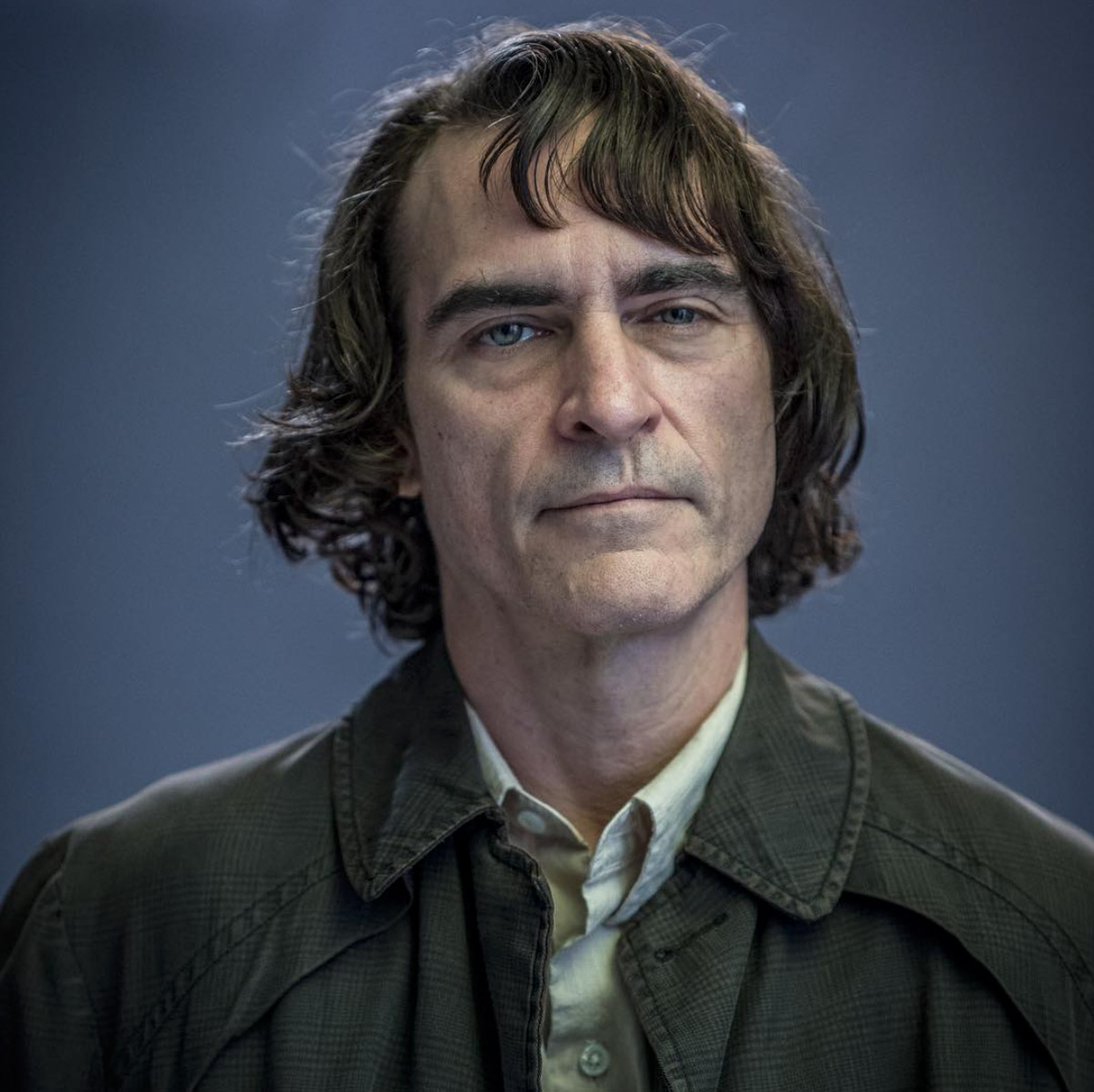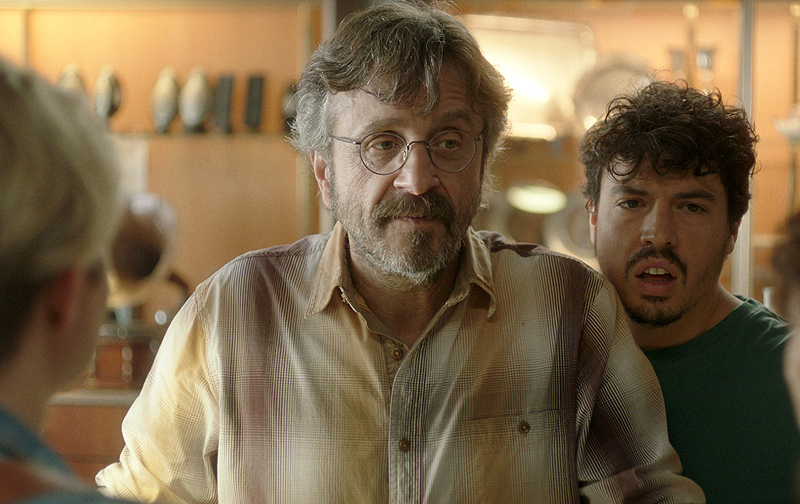IFC Films provided ComingSoon.net with the chance to speak 1:1 with actor, comedian and WTF podcaster Marc Maron about his starring role in Lynn Shelton’s hilarious comedy Sword of Trust. We also talked to him a bit about his role in the upcoming DC Comics movie Joker! Check out the full interview below…
Click here to rent Sword of Trust on VOD right now!
This riotously funny, improv-based eighth feature from acclaimed director Lynn Shelton (Outside In, Your Sister’s Sister, Humpday) is filled with her trademark insight and humanism while slyly exploring our increasingly divided culture of conspiracy theories and revisionist history. When Cynthia (Jillian Bell, 22 Jump Street) and Mary (Michaela Watkins, Casual) show up to collect Cynthia’s inheritance from her deceased grandfather, the only item she’s received is an antique sword that he believed to be proof that the South won the Civil War. The two attempt to unload the object to a curmudgeonly pawnshop owner Mel (Marc Maron, GLOW) and his man-child sidekick Nathaniel (Jon Bass, Molly’s Game). When Mel and Nathaniel discover there’s a black market for the relic, the two pairs reluctantly join forces to sell this rarefied ‘prover item’ to the highest bidder. The adventure that ensues takes the four of them on a wild journey into the depths of conspiracy theory and Southern disillusionment. Anchored by a hilarious and emotionally raw performance from Maron (who also wrote and performed the music), Sword of Trust is a sharp, unexpected ensemble comedy with Shelton’s authentic take on the complexities of interpersonal relationships on full display.
RELATED: Joker: Marc Maron Praises Todd Phillips’ ‘Interesting Approach’ to the Film
ComingSoon.net: I remember going to a Barnes and Noble almost 20 years ago to see you doing the “Jerusalem Syndrome” book tour.
Marc Maron: Right. Weird.
CS: Yeah, it was weird because I think it was me and like eight other people and it was this very intimate little conversation and you were really cool. You were hanging out and everything, but to see where you are now is crazy because if you did that today there would be 300 people there easily.
Maron: Where was that?
CS: That was at the Barnes and Noble near BU.
Maron: Right. Kenmore Square. Oh wow. Yeah. A big return back to my old stomping grounds, which is disappointing for the reality of where I was at.
CS: You went to BU, right?
Maron: I did, yes. And I lived there. I went back to Boston. I graduated BU and then I went to LA for a year and then I went back and started my comedy career there and lived there on and off for another couple of years. I hardly ever go back, but I’m going back in October to shoot my special at the Shubert in October.
CS: This new film “Sword of Trust” is funny because in the movie you’re still identifiably your persona, but in a different context. Would you say it’s fair to say that in a lot of ways this movie is almost like an alternate universe version of “Maron” if you had never become a comedian?
Maron: I guess. You know, the weird thing about my position, whatever it would be that I hold in this cultural universe, is that I had chosen to be very candid and the relationship I have with my audiences over the time has become very personal.
CS: You present yourself as an open book.
Maron: Yeah, for the most part. That’s just the nature of how I approach standup and everything. But the weird thing is that now that I’m acting, I’ve realized that unlike other actors -if I’m going to call myself an actor- unlike other people that do that job, so many people know so much about me that they can say, “Well, that’s just sort of you, right?” But if they define me as the podcaster or my comedy was all that was out there, people wouldn’t be able to say that. They would just say, “That was a pretty convincing job you did there.” So my need to connect in the ways I do has become this strange kind of… it’s not a liability, but people just always assume that. “Well, you’re just doing yourself.” But I would argue that a lot of actors that people identify with or are fans of, if they’re not putting on weight or doing the accents, they’re doing roughly themselves, really, but I don’t think anyone says to them, “Yeah, you’re just being you.” But I know what you’re saying, and I think that, no. Like there are a couple of different prefixes that I operate at emotionally. It’s not that it’s erratic, but I definitely have a broad spectrum of how my particular anxieties or anger or sadness manifests in my regular life. So I think that when I approach these roles that are definitely in my wheelhouse… Certainly some of my own backstory’s in there. You have got to stay in a character when you’re doing a movie or a show like “Glow”, so it’s a matter of the elements of that in my real life fluctuating and locking into an emotional zone of whatever that guy is. But yeah, I think in some other way, if I was to have given up and just surrendered to a certain amount of disappointment in the best way I could without being paralyzed by self pity, I guess I could’ve been Mel. It made me stronger than I am to continue living with what he’s carrying in his heart, you know?
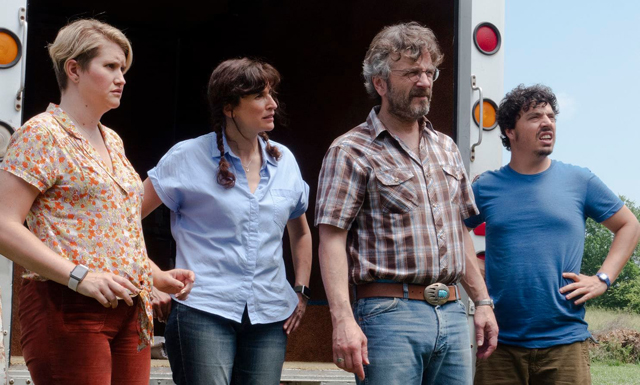
CS: Right. I understand what you’re saying about how you’re very open about who you are and the parts that you’ve had to play so far have been close to that milieu. But it’s interesting to compare. I think what you do is a little more honest than someone like a Woody Allen or a Jerry Lewis or even Ben Stiller, who play dweebie guys onscreen but in real life they work out and they’re pretty serious and they’re not really like those personas.
Maron: Well, you know, I’ve been trying to keep in shape. I think the interesting thing, now you bring it up and if I really think about it is, yeah, I don’t think that I could’ve been Mel. I do not think that I could’ve been in that relationship with this kind of F-ed up love. I don’t think I could have a commitment to a love that was that painful. I don’t know that I would have. So I think there is a fundamental difference between me and that character, you know?
CS: I grew up in the south and thought the movie did a really good job of capturing that quiet and almost desolate feeling of certain small southern towns. Everything goes at a much slower pace than a big city. Once you were on location, did you find your rhythm’s getting a little mellower, since you play this guy a little less high strung than your typical sort of shtick?
Maron: Well, yeah. I have that reaction. Over time, I’ve grown to really appreciate the south and the good things about it and understand the bad things about it. I’ve always had a pretty good experience with the people down there. I think Lynn really set out to be respectful, even embraced the environment and even disturbing kinds of people that were there. I think she went out of her way so we wouldn’t fall into some sort of condescending stereotypes, which usually happens when people assess that environment. Even somebody like Toby Huss, his character was very broad, but there were a lot of crews from down there who were like, “Oh no, we know that guy. That’s a real guy.”
CS: The characters are not just figures of hatred. They’re not straw men.
Maron: Right, exactly. Yeah, and I think that it was my improvisational decision, when the two goofy rednecks come back around it was my decision to realize that I knew them since they were kids. I think that gave them a whole different dimension with just a pretty simple exchange. I think that it was kind of childish, and it kept those two from falling into the stereotype.
CS: Absolutely, yeah. And Lynn actually took a bunch of your musical outros from “WTF” and essentially used that as the score. It fits really well because your music already has that delta blues thing happening.
Maron: Yeah.
CS: But did you have any input into what she chose and where she put it? Or were you just like, “Here are the tracks, have at it.”
Maron: Lynn is a big fan and champion of mine, and I think really understands and resonates with most of my output creatively. She had hired somebody else to do the score, but then she realized that my playing would fit the character and the environment. So ultimately what happened was I had hundreds of those types of recording. I had my producer Brendan McDonald just send over a file of 50 or 60 of those. And then pull whatever you want. And then it was sort of a question of whether it fit the score. I did a pretty good job in recording those things, so they’re all as they were. Some of them, like that one that closes the movie, it turned out to be the exactly the right fit. That was a serendipitous thing that worked out with that. And then, the last piece under the credits, Tal Wilkenfeld composed that thing. It’s an original piece of music, but it’s based on that kind of Bo Diddley riff that came through, like John Hammond’s version of “Who Do You Love.” You wanted that bounce to it. But that was my first experience, because I never set out to be a professional musician and I’m happy about that because I can still enjoy it, but being in a studio for 12 hours, working with real pros, it makes you realize like, this is definitely a job and it’s not my job, but I’ll try to pull my own here.
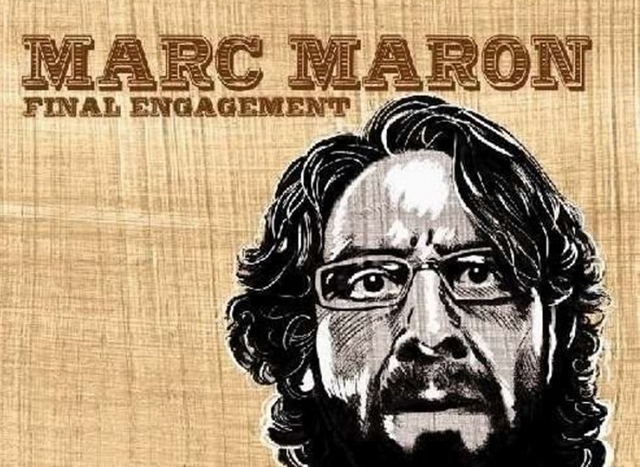
CS: You’re 20 years sober now, which is awesome.
Maron: Thanks a lot. Yes.
CS: You talk very openly and often about it with guests on your show and onstage. When you do a scene like the one in the truck, where you’re describing this character’s downward spiral, is that triggering at all or is exploring this territory old hat for you at this point?
Maron: Well, I don’t know if it’s triggering of anything. It’d be the deep emotions that come from that show. It definitely doesn’t trigger me to want to do drugs. But to access and understand the feelings of a loss and the feelings of really being affected by that disease of addiction, there’s a deep level of different feelings there, helplessness, anger, heartbreak and all that stuff. So leaving that place, it’s cathartic and it’s not triggering anything bad.
CS: Speaking of being very open, my favorite album of yours is “Final Engagement” just because it’s so raw, but it’s still insanely funny. All the stuff about the broken daddy box and all of that. Do you think you could get away with being that raw in your act in the climate we have now? Could you still do that album without getting picked apart on Jezebel or whatever?
Maron: That’s a good question. I don’t know. You know, I thought about that with other stuff because I’ve gotten emails about an old Letterman appearance I did with a break the ice joke that I did years ago about teenage girls. Some guy said, “You might want to take that down. It’s not a good look now.” And I’m like, I’m not going to do that. I’ve got to own who I am and who I was and where that stuff has come from. I think that the real issue around this stuff now is when there are certain things that are obviously incitable. There are certain transgressive and obviously really kind of morally reprehensible and wrong. But people move through things, and I think as a culture, in order to really change, the idea of growth has to be made. To do that material without some sort of elevated layers and empathy and consequence about the time we live in now I think would be wrong. The subject matter of that album feels real, I think that it still resonates in my experience, but I do not think that my own empathy would devolve. I felt slighted and angry and broken hearted and betrayed, and that was an album created by a guy really at the end of his goddamn rope emotionally and mentally and financially. So I don’t know if I could do it the same way, nor do I think I’d want to, but I have no regrets about doing it.
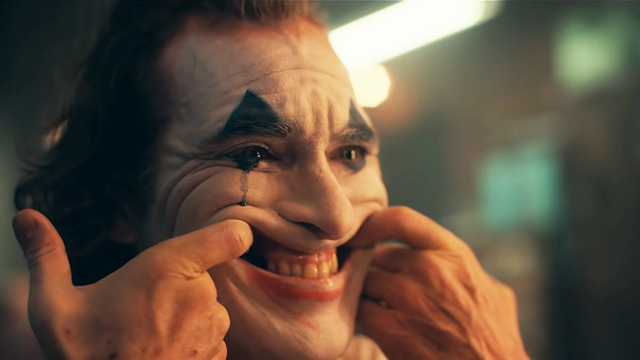
CS: No, nor should you. I’m looking forward to “Joker” coming out in October and I know Todd already came out and said this doesn’t have anything to do with the comics. It seems to have much more of a flavor of something like “King of Comedy.” I know you’re a little bit of a comic book guy, at least the grown-up Vertigo-style of comics. In what way do you think this movie feels like those more adult leaning comics that we got in the 90s?
Maron: My foray into comic books was later in life, and it had nothing to do with the Marvel Universe. Oddly, I did gravitate a little towards some of the DC stuff, some of the later Batman stuff, some of the Alan Moore “Swamp Thing” stuff. But yeah, in terms of mainstream comics that I liked when I was probably in my late 20’s was the Neil Gaiman stuff. “Hellblazer” was one of the mainstream comics that I really locked into, and the same with “Sandman.” But yeah, I did read a lot of the Harvey Pekar stuff and the Peter Bagge stuff and the Dan Clowes stuff and Charles Burns. So I think that this thing is outside of the comic book world, it’s sort a gritty movie about a guy with a mental illness. Todd goes into why that mental illness exists and getting out of that becomes part of the story of the character he becomes. So in that way, I think as a story about an individual struggling and ultimately losing the battle for his own personal sanity, I don’t know how it relates to those comics, but yeah. I guess it sort of does, that whatever contribution this will make to the mythology already established in the DC Universe… I don’t know how relevant that really is to this particular approach to this character. Any Joker movie at this point is really any director or writer’s meditation on the origin story of this character. There seems to be a certain amount of creative license around reimagining these origin stories.
CS: That’s definitely the feeling I got, where the movies are in a place now where they’re sort of where the comic books were 20, 30 years ago, where it’s like, “Okay, everything’s been done. Let’s open this up. Let’s take it in a more adult direction.”
Maron: I guess that happens a lot. I really have sadly not seen most of the Marvel movies. I feel like I’ve seen most of the Batman movies, which I think kind of lean towards what you’re saying. Maybe I’m wrong or speculating because I’m not a comic book nerd, but it seems like some of the DC stories are more focused on the struggle between good and evil in these individual characters that kind of rides that line. Like Batman’s struggle with his personal darkness becomes sort of the hinge of the mystique of that character. And I don’t know if that happens as much in the Marvel universe. Maybe it does. So yeah, but I think you’re right. I don’t know. This is definitely an adult movie. It’s not a spectacle. It’s more of a story based around an individual with problems.
Joker (2019)
-
Joker (2019)
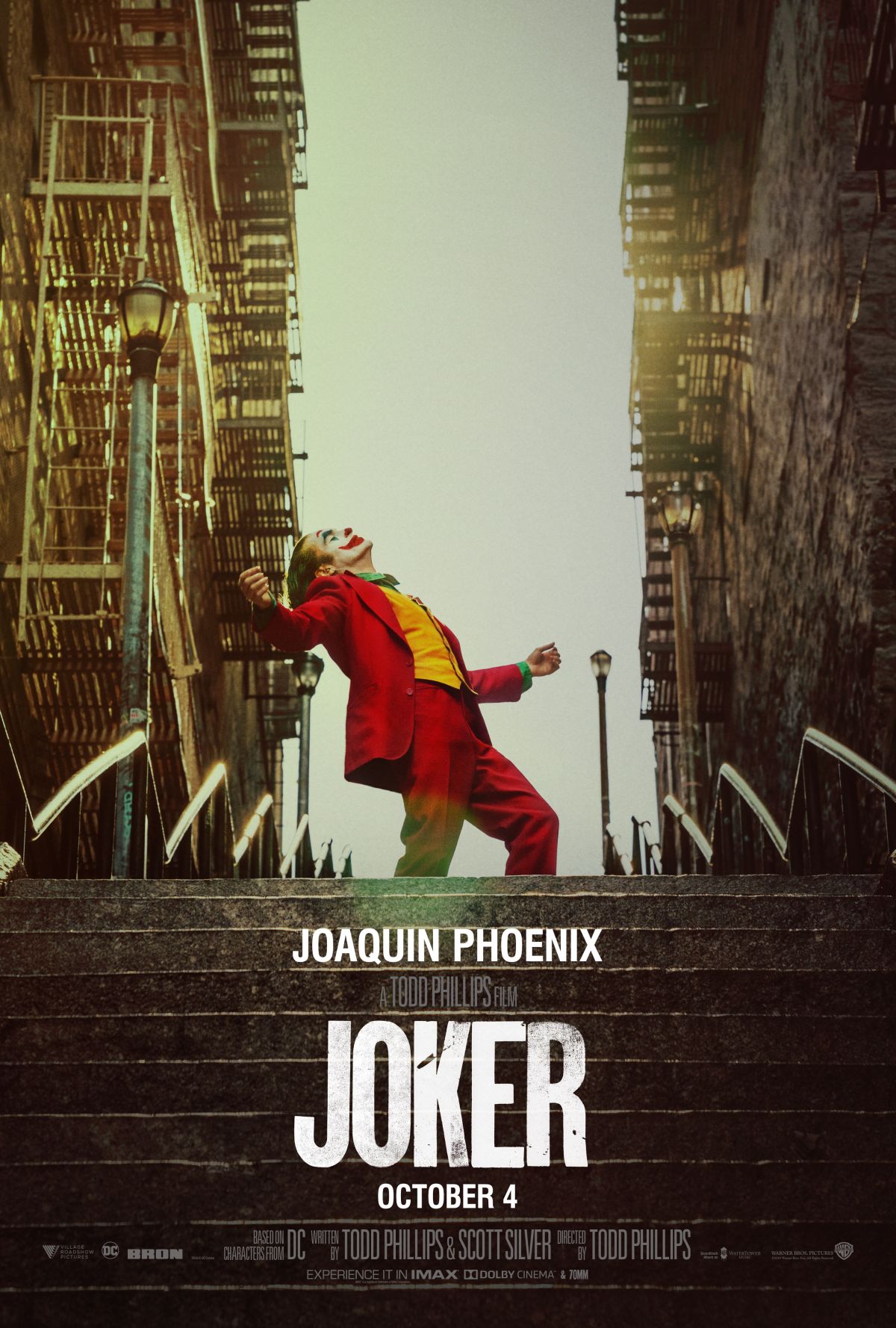
-
Joker (2019)

-
Joker

-
Joker
